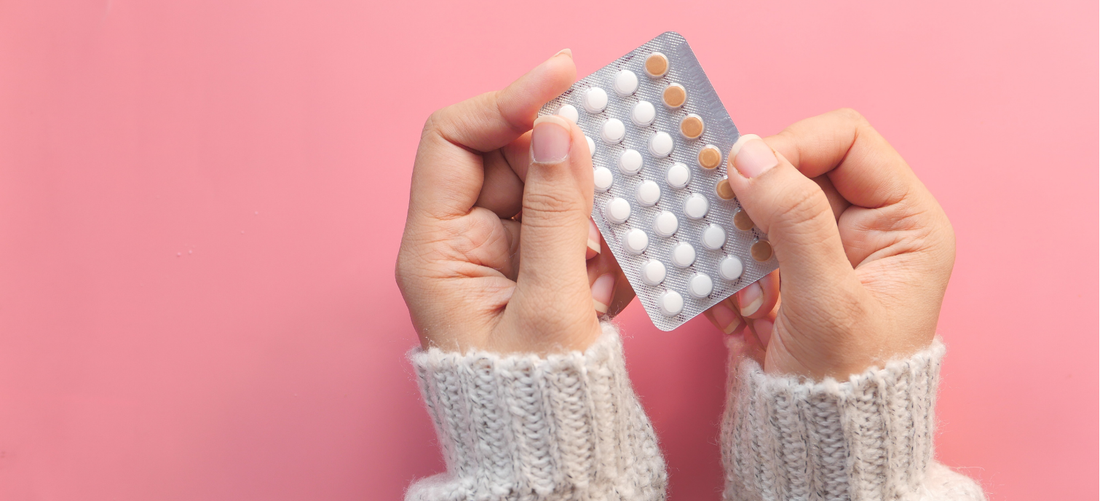Just a few days ago, a pro-pill TikTok popped up on my For You Page.
"I can’t believe I live in the same era as people who are against the pill, when the pill gave women the chance to have a career."
You can’t believe it? Well, I’m one of them and here’s why.
The timing for this piece couldn’t be more perfect: August 18 is the national day of the Contraceptive Pill. Exactly 65 years ago, it hit the US market and changed the world. Well, did it really?
Did the pill change the world?
For the first time in history, women could reliably and independently decide if and when to have children.
📊 The numbers speak for themselves:
- In the US, the share of female college students jumped by over 20% within 10 years of the pill’s introduction.
- Today, over 151 million women worldwide use the pill.
- In Germany, almost half of the women between 18 and 49 have taken it at some point.
The pill wasn’t just a contraceptive it was a game-changer for female empowerment:
- Bodily autonomy: Sex without the constant fear of pregnancy.
- Career booster: More women could study longer, take jobs, and pursue professional goals.
- Cultural shift: A driving force behind the sexual revolution, reshaping gender roles, marriage, and equality debates.
So why am I against it?
The pill had its moment, and I’m not denying that, but the emphasis is on had.
Yes, it sparked a societal shift, but that momentum slowed fast. Sixty-five years later, we’re still far from equality, and traditional gender roles are alive and well.
And that’s only one part of the story. The list of problems this little hormone-loaded tablet drags along is endless.
Not a harmless little tablet, but a hormone bomb
The pill isn’t a light-touch medication. It’s a direct, daily interference in your hormone system.
Common side effects:
- Weight fluctuations (gain or loss)
- Headaches or migraines
- Mood swings, depressive episodes
- Loss of libido
- Nausea or stomach pain
- Breast tenderness
- Spotting or irregular bleeding
- Skin changes (better or worse acne)
Rare but serious risks:
- Increased risk of blood clots
- Increased risk of heart attack or stroke (especially in smokers over 35)
- High blood pressure
- Changes in glucose tolerance (critical for diabetes)
- Liver issues or, rarely, liver tumors
Depression: The underestimated risk
The pill can worsen or trigger depression, especially in women already prone to it.
📊 What the research says:
- Danish long-term study (1M+ women, 2016): Pill users had up to an 80% higher risk of being prescribed antidepressants for the first time, highest among 15- to 19-year-olds.
- Risk was particularly high with high-dose hormonal contraception.
- Many women reported low motivation, irritability, or worsening of existing depression.
Personality changes, not a myth
What was once laughed off is now backed by science: taking synthetic hormones daily can alter personality, mood, and perception.
Research findings:
- Emotional changes: 37% of women quit the pill because of emotional side effects.
- Stress response: Higher inflammation markers and poorer recovery under stress.
- Attraction shifts: Some studies suggest partner preferences may change.
- Cognitive effects: Hormones influence memory, emotions, and stress regulation; 43.6% report mood swings.
Why is it really perscribed?
Officially? For contraception.
In reality? For acne, irregular or absent periods, PCOS, heavy bleeding, and more. Often treating symptoms, not causes.
My story: I got the pill at 13, not for birth control (that wasn’t even relevant yet), but because my period came too rarely.
The real reason? I had an eating disorder and had starved myself for a year. My body simply shut down my cycle, but my gynecologist never even mentioned that.
A decade later, I wanted off. The side effects scared me, and I wanted to let my body figure things out naturally. That’s when PCOS came up. Doctors pushed me back toward hormonal contraception: “The pill is the best solution.” I refused. My endocrinologist later told me that early pill use can actually prevent the natural hormone-regulation system in the brain from developing properly, leaving you dependent.
Just last week, a gynecologist told me my irregular periods couldn’t be managed without hormones. I told her I wanted to try nutrition and stress management first. Her answer? “That doesn't work.”
Why always women?
Women’s health is notoriously under-researched. For decades, medical studies were done almost exclusively on men. Yet in the 1960s, it was decided that women should be the ones to be hormonally altered to prevent pregnancy. Side effects? Ignored.
Over 60 years later, yes a male pill exists. But how many men take it? Exactly.
And instead of asking why, we still see posts and jokes about whether men can be “trusted” with birth control. But it's not funny, it's part of the problem. Sixty-five years ago, contraception was made women’s job. And it still is.
Contraception is still largely our responsibility, physically and financially. And guess what? The “lower dose” or alternative methods are often more expensive.
My bottom line
Did the pill help women access education and careers? Yes.
Was it the sole driver of societal change? No.
Today, we’re more informed. We know more about the menstrual cycle, natural fertility, and alternative methods. The pill isn’t inherently evil, but it’s overprescribed and dangerously downplayed.
We can thank it for what it’s done.

 ENGLISH (USD)
ENGLISH (USD)
 DEUTSCH (EUR)
DEUTSCH (EUR)
 DUTCH (EUR)
DUTCH (EUR)
 ITALIA (EUR)
ITALIA (EUR)
 ENGLISH (EUR)
ENGLISH (EUR)
 ENGLISH (GBP)
ENGLISH (GBP)
 FRANCAIS (EUR)
FRANCAIS (EUR)


